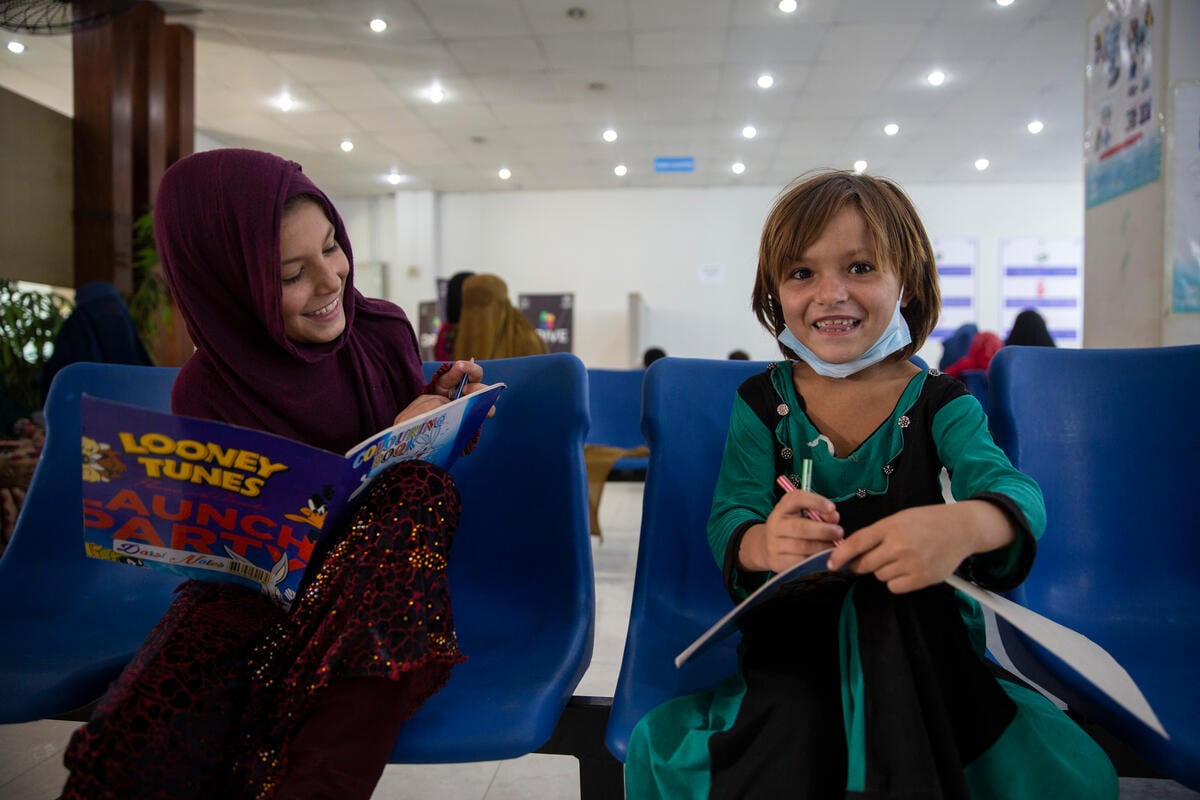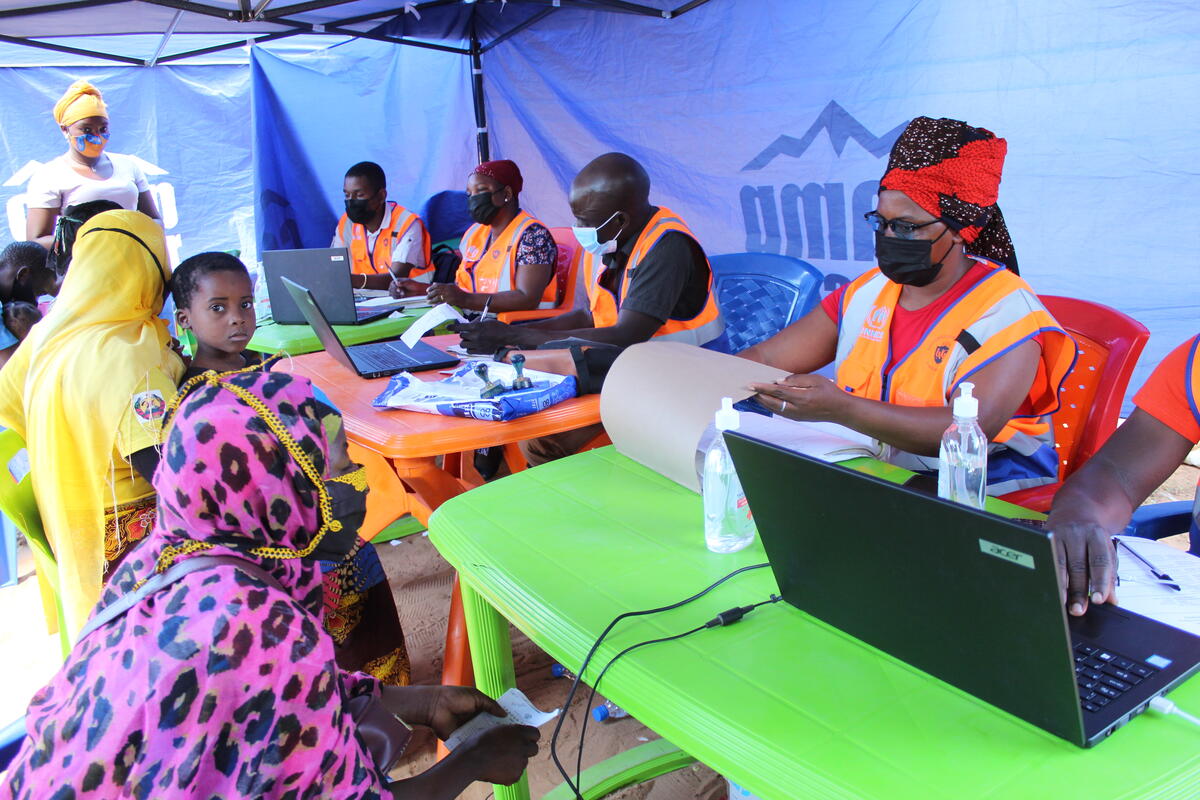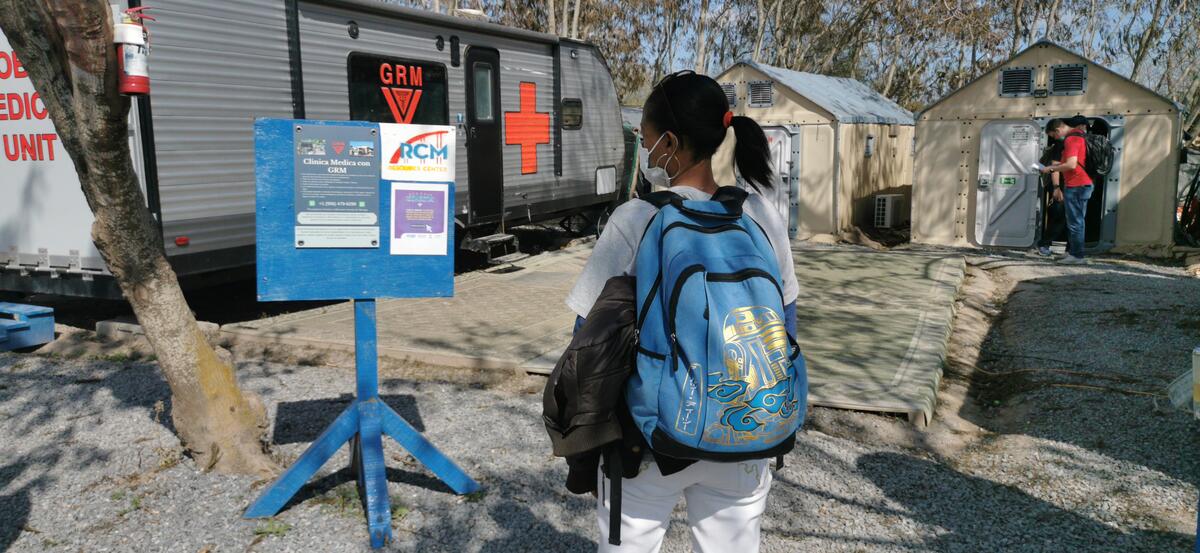In northern Ecuador, mobile teams bring rights to Colombian refugees
In northern Ecuador, mobile teams bring rights to Colombian refugees

NUEVO LOJA, Ecuador, February 18 (UNHCR) - Four years after arriving in Ecuador after fleeing her home in neighbouring Colombia, Mariela is feeling more optimistic about the future as the result of a pioneering government programme that has dramatically simplified the process of being recognized as a refugee.
The Enhanced Registration project is run by the government of Ecuador and supported financially and technically by UNHCR. Unique in Latin America, the programme sends teams into remote areas of the country where they interview Colombia asylum-seekers, often making a decision on their refugee status on the same day and then issuing refugee visas.
For 47 year-old Mariela, the refugee visa brings with it a legal status, and the rights that go with it, that she had lacked previously. Married for 18 years to an abusive husband, she now feels able to approach local authorities seeking protection.
"I work from 4 am until 9 pm However, I don't have anything," she said. "My husband handles my money, he handles me. But I would love having something of my own. I wish I could learn something, that's what I want. Before, as I didn't have the visa, I was scared."
Over the past four months, members of so-called enhanced registrations brigades have issued some 11,000 refugee visas to Colombians living in a remote part of northern Ecuador bordering Colombia. The teams carry out interviews, registration and determine refugee eligibility all in a single day. Previously, navigating the regular asylum process could take years.
The project has been underway since July 2009 and has reached thousands of people in need of international protection. Before their contact with the registration brigades most of the asylum-seekers had lived on the margins, lacking a formally recognized refugee status and unable to adequately access public services. In the northern province of Sucumbios, just 5,000 Colombian asylum-seekers were issued refugee visas between 2000 and 2008, a figure the registration brigades have surpassed in a matter of months.
The brigades' successes are due to their ability to reach isolated communities in a region often lacking basic infrastructure such as paved roads and running water and their speed in determining refugee status and issuing the crucial visas.
As was the case with Mariela, asylum claims previously could drag on for months or years due to a lack of resources and the remoteness of the areas where the asylum-seekers live.
Together with her husband and two sons, Mariela fled her home in Huila, a department of Colombia, when an armed group killed their landlord and then threatened the family. After traveling for a week by bus, the family entered Ecuador where the long, slow process of being recognized as a refugee began.
Despite the refugee visas and a legal framework that is more sensitive to the needs of refugees, obstacles remain. Many refugees continue to face difficulties accessing public services due to bureaucracy and lingering prejudices. Deborah Elizondo, UNHCR's Representative in Ecuador, says the challenge now is to build on the success of the mobile registration programme by ensuring refugees and asylum-seekers have effective access to their rights and the protection afforded by the State.
"Thanks to the political will of the Ecuadorian State, protection has been extended to people that remained invisible in the northern border. Undoubtedly, this is a powerful protection tool," says Elizondo. "In 2010, the challenge will be to encourage people to effectively exercise their rights. There will not be immediate solutions, but we will support the efforts of the Ecuadorian government to identify durable solutions".
By Sonia Aguilar in Nueva Loja









